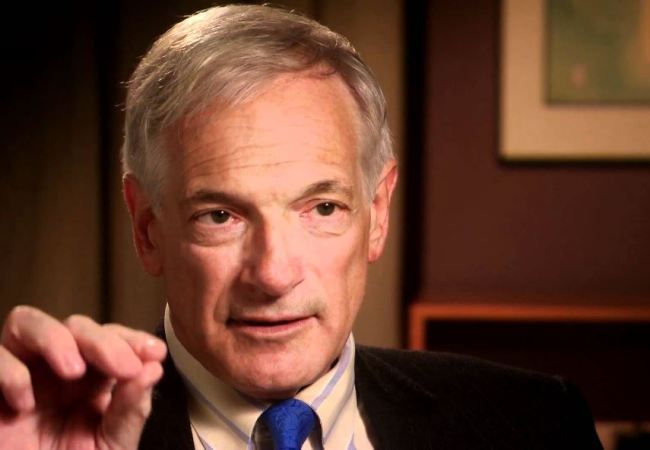N. Korea will always be recessed nuclear weapons state: Gallucci
By YonhapPublished : May 15, 2018 - 09:46
WASHINGTON -- A former American negotiator on Monday cast doubts over the prospect of irreversibly dismantling North Korea's nuclear weapons program.
Robert Gallucci, who negotiated a 1994 nuclear freeze deal with Pyongyang, aired his reservations ahead of a high-stakes meeting between US President Donald Trump and North Korean leader Kim Jong-un next month.
The Trump administration has said its goal in the negotiations is the complete, verifiable and irreversible denuclearization of the regime.
"I don't see anything as irreversible. I think the use of the word, which is supposed to convey a permanence, is unfortunately misleading," Gallucci said during a forum hosted by the Carnegie Endowment for International Peace. "As a matter of fact, my most important point on this is that you can never take away from North Korea its latent, recess capability to build nuclear weapons."

Gallucci pointed to the fact that it's impossible to get rid of the North's nuclear scientists and engineers. And even its recent decision to shut down its nuclear test site later this month means little if the regime then decides to dig more tunnels to keep testing.
"My point here is that North Korea will always be a recessed nuclear weapons state," he said. "It can legitimately join the NPT if it makes the declaration and we get the verification that we would want. But it will never ever meet the standard of absolute certainty that they've given up everything."
Since withdrawing from the nuclear non-proliferation treaty in 2003, North Korea has conducted six nuclear weapons tests, including the latest detonation of a hydrogen bomb in September.
Gallucci negotiated the Agreed Framework with North Korea to defuse the 1993-94 nuclear crisis. The deal called for North Korea to freeze and ultimately dismantle its nuclear program in exchange for political and economic concessions.
The agreement fell through with the outbreak of the second nuclear crisis in 2012, after the North was found to be running a clandestine program to enrich uranium for nuclear weapons.
Beyond the nuclear program, though, Gallucci said it is difficult to imagine the US entering into a normal relationship with a country that is accused of serious human rights abuses. (Yonhap)








![[Graphic News] More Koreans say they plan long-distance trips this year](http://res.heraldm.com/phpwas/restmb_idxmake.php?idx=644&simg=/content/image/2024/04/17/20240417050828_0.gif&u=)
![[KH Explains] Hyundai's full hybrid edge to pay off amid slow transition to pure EVs](http://res.heraldm.com/phpwas/restmb_idxmake.php?idx=644&simg=/content/image/2024/04/18/20240418050645_0.jpg&u=20240419100350)






![[From the Scene] Monks, Buddhists hail return of remains of Buddhas](http://res.heraldm.com/phpwas/restmb_idxmake.php?idx=652&simg=/content/image/2024/04/19/20240419050617_0.jpg&u=20240419175937)

![[KH Explains] Hyundai's full hybrid edge to pay off amid slow transition to pure EVs](http://res.heraldm.com/phpwas/restmb_idxmake.php?idx=652&simg=/content/image/2024/04/18/20240418050645_0.jpg&u=20240419100350)

![[Today’s K-pop] Illit drops debut single remix](http://res.heraldm.com/phpwas/restmb_idxmake.php?idx=642&simg=/content/image/2024/04/19/20240419050612_0.jpg&u=)